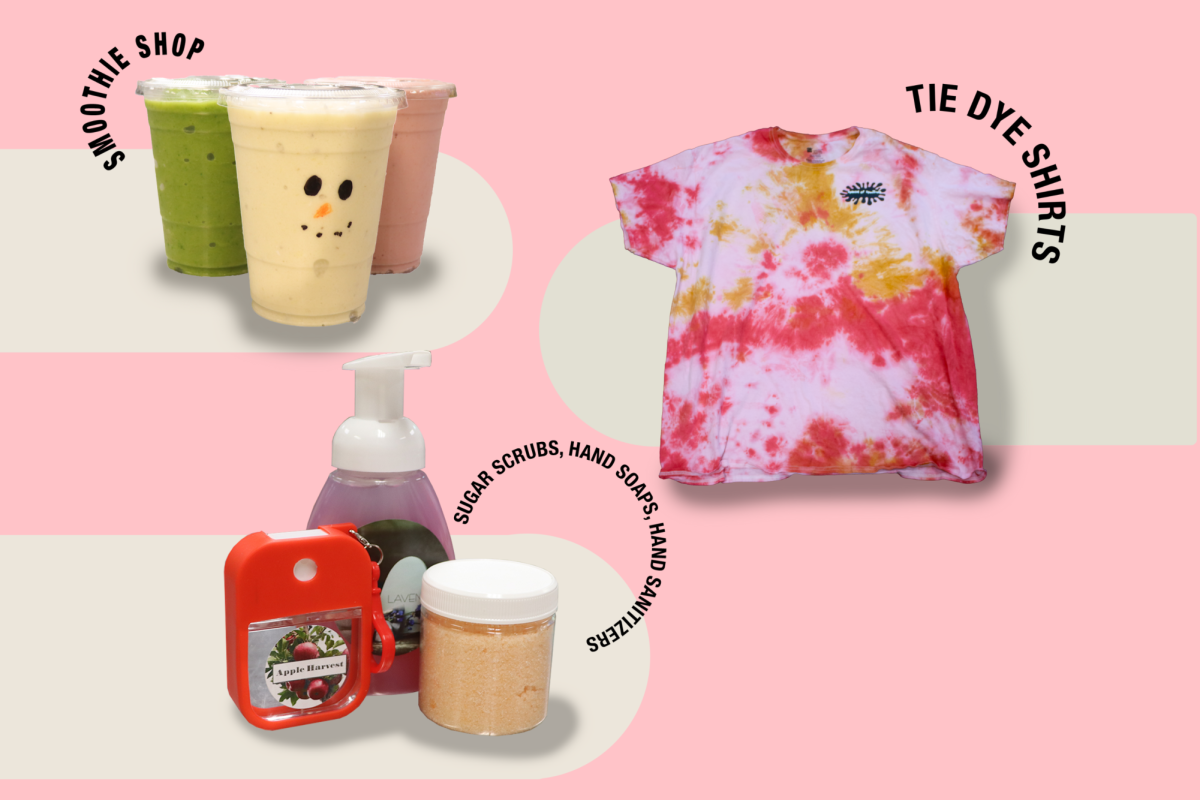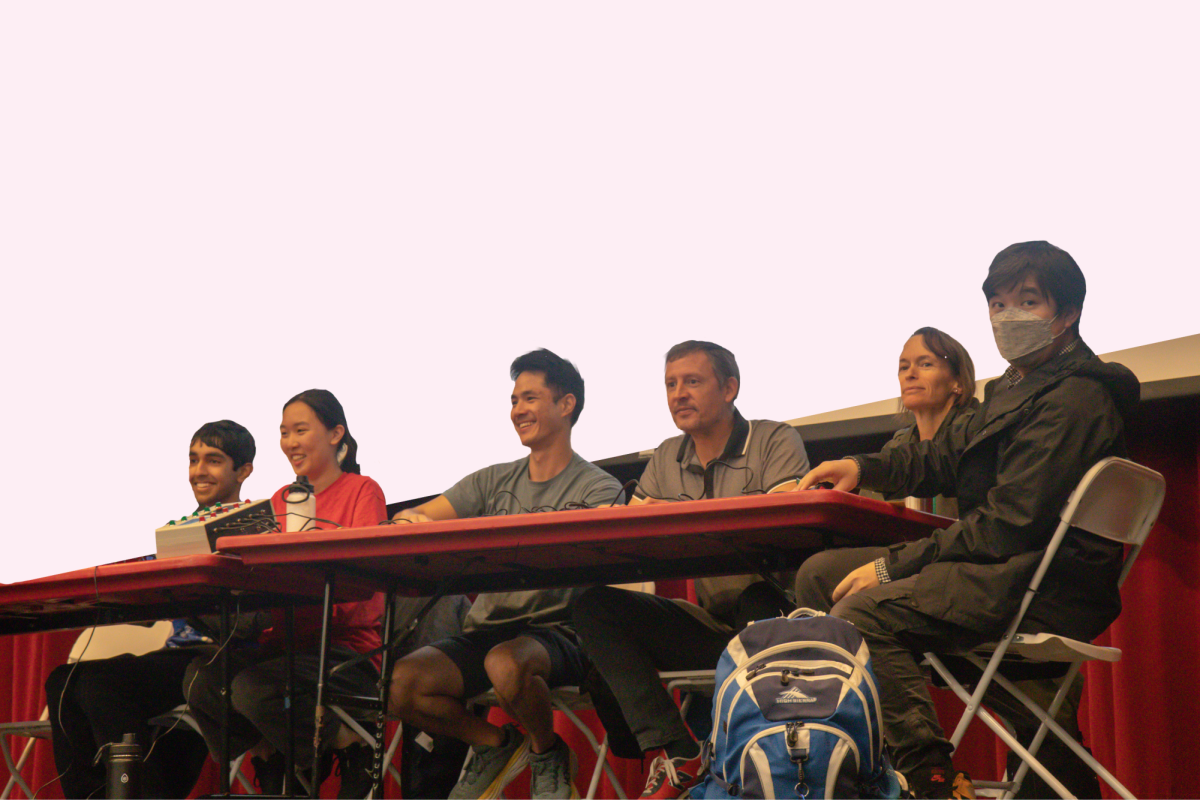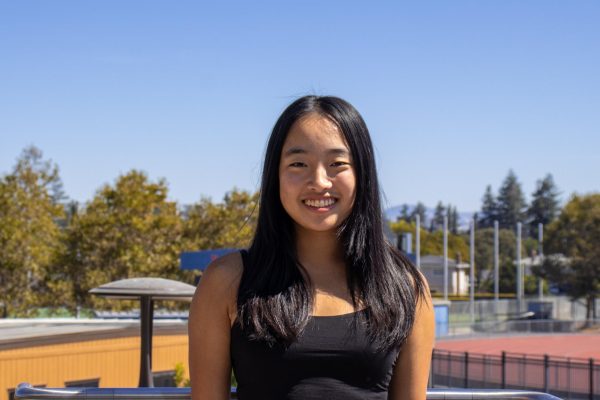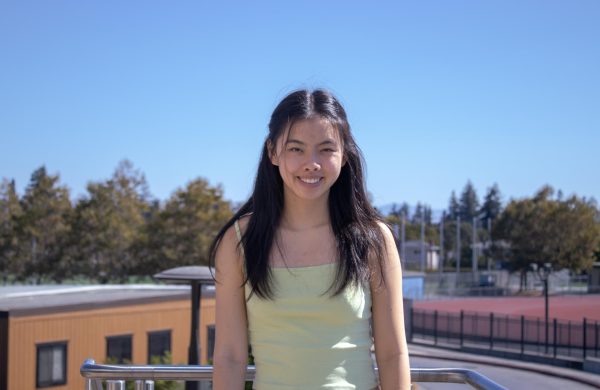From handcrafted soap bars to tie-dye shirts to homemade smoothies, students in the special education department build organization, creativity and problem-solving skills through their business ventures.
Students in the Training for Transition class — a program developing on-the-job training skills for students in special education — run a smoothie shop where they practice workplace readiness.
“A smoothie shop was something I had been inquiring about for three years,” Training for Transition teacher Megan Miller said. “It was a team effort with many people at the district and here at Lynbrook that put their heads together and said, ‘Yes, we can make this happen.’”
Miller works with six to eight students, assigning them tasks such as measuring fruit, chopping ingredients and blending smoothies. As they practice hands-on skills, the students partake in workplace routines, reinforcing the importance of punctuality and taking initiative to ask questions.
“I’m hoping to encourage and boost student confidence in a workplace-type setting,” Miller said. “It’s really about trying to provide a real-life opportunity for students to apply what they’re learning in the class in terms of workplace readiness to a safe space.”
Initially open only to staff, the smoothie shop has since expanded to all Lynbrook customers via the ASB store. So far, the shop has sold steadily, with staff and occasional student sales. As the students got into the flow of their shop, they brainstormed seasonal specials: a “Frosty the Snowman” drink for winter and a pumpkin spice-flavored drink for the fall.
Last Christmas, the Student, Opportunity, Achievement, Responsibility program expanded to include a tie-dye business aimed at funding class trips and providing a second business for students to gain motor and planning skills. The SOAR Program aims to prepare students for a more independent life after high school.
“One priority is ensuring the students focus on their vocational skills,” paraeducator Andrea Garcia said. “Since this is a postsecondary program, the main goal is giving them as much independence as possible.”
To create the shirts, the students start by covering white shirts in soda ash, which improves the strength of the color. They then tie up the shirts and create individual dye designs with full creative freedom, and finish by ironing on the shop logo. These steps have been expanded to include bandanas, tote bags and socks, and through this process, the paraeducators have observed growth in their students’ understanding of expectations and focus.
“A moment that stands out to me is seeing the reactions after products are finalized,” Liz Driscoll, a teacher in ACT 2, said. “We can tell how happy consumers are with the work that the kids are doing.”
Currently, tie-dye items are primarily sold to the Lynbrook staff, but plans are underway to make them available through the ASB store. They can also be purchased at the Holiday Craft Faire or through Fremont High School’s Educational Options program. To prepare for the holiday season, the team is currently experimenting with new types of items such as lanyards and crewnecks to expand their inventory.
The Academic Community Transitions 2 program launched a sugar scrub, hand soap and hand sanitizer business in 2017, where students gain confidence in their work by creating these products.
“Our short-term goal is to save up money for community-based instruction,” teacher Eugene Pak said. “Long-term, the skills our students develop and practice are ones they will take with them after graduation.”
Driscoll, who began the business, spent months refining scents, oils and measurements through trial and error. Over time, the unique products were spread by word of mouth, and the business began attracting customers.
The students are completely hands-on with the process of making their products — they scoop sugar; add oil, food coloring and essential oils; mix the ingredients; package and label.
“We wanted a vocational task that our students could do to earn money for bigger outings,” Driscoll said. “When we first started this business and went to a craft fair at the district office, staff were surprised to see that our students were out selling and promoting products they had made themselves. It was a very proud moment for the staff to show that our students are capable of anything.”
Initially starting with sugar scrubs, the students now make hand soaps and hand sanitizers as well. There are now four to five paraeducators who oversee the business, while the students participate in all other aspects of making the products.
“We hope our students are seen as so much more than individuals with challenging behaviors,” Driscoll said. “They are capable of so many amazing things.”






































































